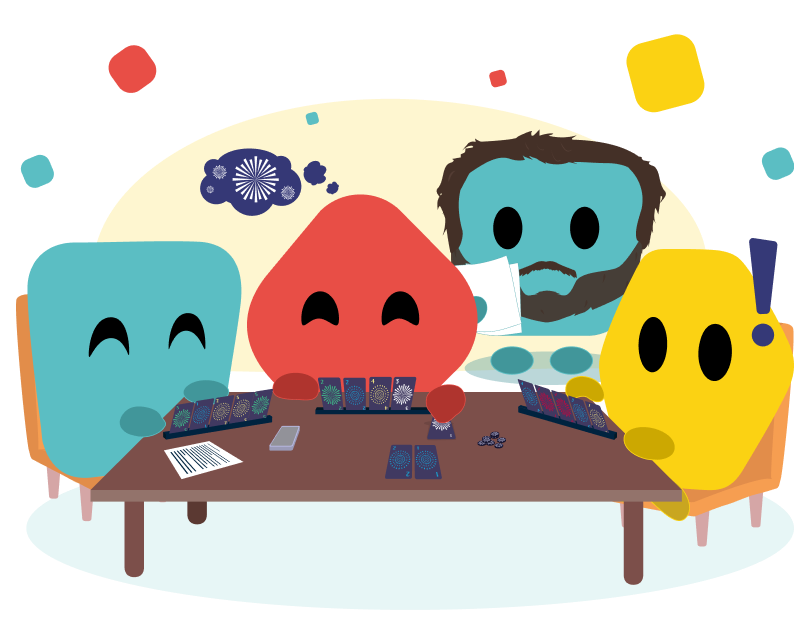- Project
- Completed
Playing Hanabi, a study on fun and learning

Régis Catinaud Doctor of Philosophy
Régis Catinaud is a Doctor of Philosophy. He is also the founder of a ludo-pedagogy association and currently runs the GameLab in Sète. He manages gamification, game design, and territorial development activities.
-
Project start date :
2020/09/07 -
Status :
Completed -
Research organization :
Ateliers Ludosophiques, “Video Games” branch of the RIERA laboratory, Paul Valéry University of Montpellier, GameLab of Sète -
Team :
Marion Sourd (Ateliers Ludosophiques), Dr. Claire Siegel, Florian Cossart (Paul Valéry University), Robin Lamarche-Perrin (Game Lab of Sète)
In 2020, Game in Lab selected Dr Régis Catinaud’s project to study the possible balance between fun and learning in the Hanabi board game. The main idea of this project is to build an observation framework and measurement tools to report on the behaviors and skills engaged by players in a game situation.
Project overview
This research project focuses on the relationship between fun in a board game and player learning. The objective is to examine whether fun is a way to learn better, that is, whether a player’s level of immersion influences the number and quality of the inferences they can make in the game. The level of immersion is manipulated according to the concept of “flow”, i.e. the balance between the difficulty of the game and the players’ ability to respond to it. Also, learning is measured through the players’ logical inferences (useful conclusions drawn from observations of the game) and social inferences (anticipation of other players’ actions). This study is based on the cooperative board game Hanabi, which offers many possibilities of both logical and social inferences.

Methodology
Parts of the Hanabi game are organized according to three game modes: ordinary (official version of the game), tension (difficulty increased by a time constraint), boredom (difficulty decreased by the removal of a rule). Inferences made in the game are analyzed using a web application of quantitative observations developed specifically for this study, a grid of qualitative observations and a post-game questionnaire. The observations and responses to the questionnaire are compared based on the three game modes.
Outcomes
This study is a pilot study for future research protocols. While the results do not confirm the relationship between immersion and inferences, they highlight the possibility of improving immersion in Hanabi, the possible positive relationships of tension or boredom with immersion, and the need to distinguish between immersion and flow.
